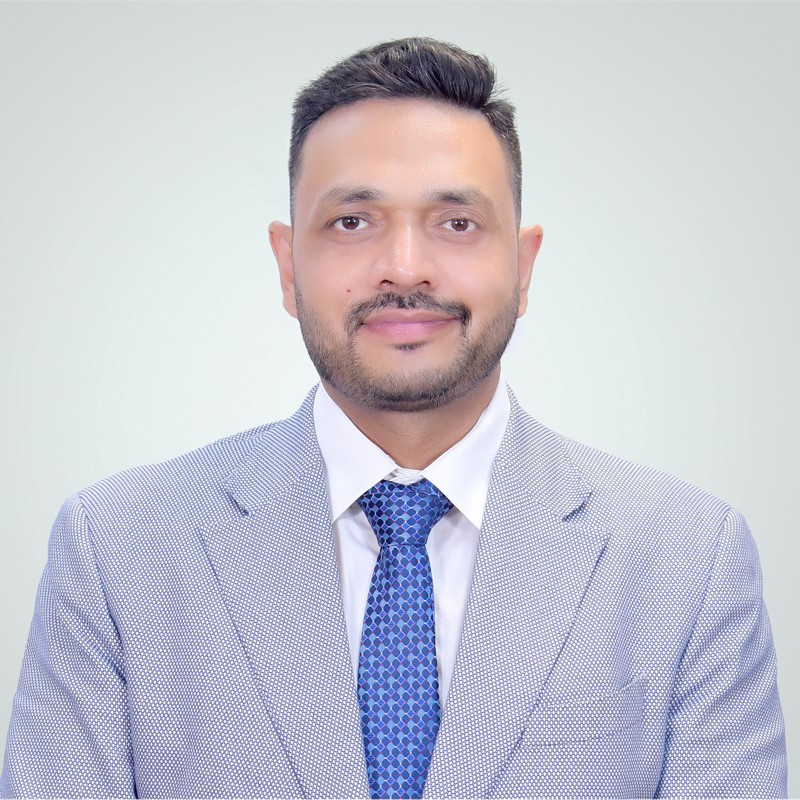This interview has been published by Namrata Singh and The SuperLawyer Team

Could you take us on a brief journey from your college days, highlighting key experiences or lessons that have shaped your path in the legal profession, leading to the establishment of Charter Law Chambers?
Sure! Starting from my college days, I learned the importance of critical thinking and research skills, which are essential in the legal profession. Participating in moot court competitions honed my advocacy skills and taught me the importance of preparation and presentation. Internships at law firms exposed me to real-world legal practice, where I learned about different areas of law and gained practical experience. Networking with professionals and mentors helped me understand the industry and navigate career opportunities. Overall, my college experiences laid the foundation for my journey in the legal profession, shaping my skills, knowledge, and passion for justice.
Additionally, the passion for justice and dedication to serving clients that were cultivated during college continue to drive the ethos of the law firm, ensuring a commitment to excellence and client satisfaction.
From its inception in 2019 to now, Charter Law Chambers has grown remarkably. What inspired you to establish this firm, and how has the journey been so far?
The inspiration to establish a law firm stemmed from a desire to create a space where I could apply my legal skills, knowledge, and passion for justice in a way that aligned with my values and goals. I wanted to build a firm that prioritized client service, innovation, and making a positive impact in the community.
The journey so far has been both challenging and rewarding. Building a law firm from the ground up requires dedication, hard work, and perseverance. There have been obstacles to overcome, such as navigating the complexities of running a business, attracting clients, and establishing a reputation in the legal industry. However, each challenge has provided an opportunity for growth and learning.
Your profile emphasizes your significant role in electricity regulatory matters. Can you share a specific case or achievement in the energy sector that you are particularly proud of?
My office assisted Adani Electricity Mumbai Limited (AEML) & Adani Electricity Mumbai Infra Limited (AEMIL) before the Supreme Court against a Civil Appeal filed by Tata Power Company Limited-Transmission challenging allocation of a Rs. 7000 Crore, 1000 MW HVDC VSC based Transmission Project, being one-of-a-kind Transmission Project in the City of Mumbai to to AEMIL (100% owned subsidiary of AEML) under Section 62/ non-bidding route of the Electricity Act, 2003, instead of Section 63/ bidding route.
Supreme Court on 23.11.2022 passed a landmark judgment thereby dismissing the Civil Appeal filed by Tata Power Company Limited-Transmission, thereby holding that the Transmission Project was rightly awarded to AEMIL under Section 62/ non-bidding route, and further held that Section 63/ bidding route is not the dominant route
Starting as a boutique regulatory litigation firm, CLC has expanded its practice areas. How did this diversification come about, and what factors influenced the decision to broaden the firm’s scope?
Expanding the practice areas of a boutique law firm involves careful consideration of various factors:
- Client demand
- Market Analysis
- Competitor Analysis
- Expertise and resources
- Growth strategy
- Client relationships
- Regulatory considerations
Overall, a combination of market demand, strategic analysis, existing expertise, and client relationships typically influences the decision to expand the practice areas of a boutique law firm.
Being a member of the Supreme Court Bar Association and Delhi High Court Bar Association, how has networking within these professional societies contributed to your professional growth?
Being a member of both the Supreme Court Bar Association and the High Court Bar Association provides invaluable opportunities for networking and professional growth. Networking within these esteemed associations allows for:
- Access to expertise
- Referrals and collaborations
- Mentorship and guidance
- Visibility and reputation
- Advocacy and influence
Overall, networking within the Supreme Court Bar Association and the High Court Bar Association offers numerous benefits for professional growth, including access to expertise, referrals, mentorship, visibility, and opportunities for advocacy and collaboration. These connections help foster a vibrant and supportive legal community, enriching the professional journey of its members.
Beyond legal practice, you’ve been involved in community development. How do you integrate social responsibility into the ethos of Charter Law Chambers, and can you share a specific initiative that holds personal significance for you?
Integrating social responsibility into legal practice involves a multifaceted approach aimed at making a positive impact on the community. Some instances such as doing pro bono work, policy advocacy and reform, diversity, equity and inclusion.
One such instance would be organising guest lectures at esteemed colleges all over India and holding conferences on in Delhi
Given your involvement in international workshops, like the one in Switzerland, how do global perspectives influence your advocacy, and how do you incorporate lessons from international experiences into your practice?
Overall, a global perspective enhances advocacy by promoting a deeper understanding of international laws and norms, recognising interconnectedness, fostering empathy and solidarity, promoting cultural sensitivity and diversity and utilising global platforms to advance social, economic and environmental justice.
Law is demanding, and stress management is crucial. How do you personally prioritize wellness amidst a busy legal practice, and do you encourage similar practices within your team?
Prioritizing wellness amidst a busy legal practice is essential for maintaining overall health and effectiveness. Overall, prioritizing wellness amidst a busy legal practice involves setting boundaries, practicing self-care, managing workload effectively, fostering open communication, promoting work-life balance, and providing resources and support to team members. By prioritizing wellness within the team, we can create a healthier and more productive work environment where individuals can thrive professionally and personally.
Given your involvement in education initiatives like teaching at Vivekananda College, how important do you think it is for legal professionals to engage in education, and what benefits do you see in such endeavors?
Engaging in ongoing education is crucial for legal professionals to stay current with developments in the law, enhance their skills and knowledge, and adapt to changes in the legal landscape.
As such, continuing education is essential for legal professionals to remain competent, relevant, and successful in an ever-changing legal landscape. By staying informed, enhancing skills, building expertise, fulfilling professional obligations, networking, and pursuing growth opportunities, legal professionals can continue to thrive in their careers and make meaningful contributions to the legal profession and society.
Having over 15 years of experience, what advice would you give to young lawyers aspiring to make a mark in the legal field, especially those interested in energy and infrastructure practice?
As a seasoned lawyer with over 15 years of experience in energy and infrastructure practice, here are some pieces of advice for young lawyers interested in this field:
Build a strong foundation
Specialize and gain expertise
Seek mentorship
Gain practical experience
Network strategically
Stay adaptable and open-minded
Demonstrate commitment and passion
Focus on client service
By following these pieces of advice and continuously learning, growing, and networking within the energy and infrastructure industry, young lawyers can position themselves for a successful and fulfilling career in this dynamic and impactful field.
Get in touch with Hemant Singh-























